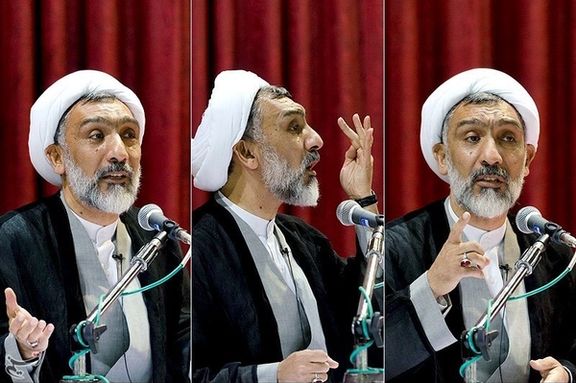Mostafa Pourmohammadi, secretary of the Combatant Clergy Association and a former interior and justice minister, said Iran would get a fair deal after initial posturing and an expected back and forth.
“You want to buy a house. The seller says one million. You walk away. He tells you to wait and brings in a broker. Then suddenly the asking price drops. In your mind, you're thinking 500 or 600 is reasonable. The broker says 750, and the deal is done,” the veteran insider and conservative said in comments carried by state media.
“Neither the seller really intended to sell for 750, nor were you ready to buy at that price. But in the end, it gets resolved. That’s negotiation.”
Pourmohammadi broadly defended Supreme Leader Ali Khamenei’s approval of negotiations with the United States, in remarks that appeared aimed at easing concerns in conservative quarters.
Khamenei’s evolving stance, he said, reflected “wise leadership” in a rapidly changing world. “You cannot say the Leader’s words at one time apply to all times and all cases,” Pourmohammadi said in remarks carried by local media.
“The world is turning moment by moment. We must have the power to make wise and timely decisions. This is the logic.”
Khamenei had in February called negotiations with Washington “unwise, undignified, and dishonorable.” His recent support for talks mediated by Oman and taking place during Donald Trump’s return to the presidency marks a notable shift, particularly given longstanding hardline distrust of US intentions.
Pourmohammadi said President Trump’s public threats were part of a broader political strategy. Referring to a letter Trump sent to Khamenei in March, he said: “If Trump had written in his letter what he said in public, he would never have received a reply. But his formal letters had a different tone, revealing his real politics.”
The cleric framed the current moment as part of a broader strategic contest. “It’s not as if there’s only one moment, one issue,” he said. “This is a psychological war, and the Leader is managing it with wisdom.”
Pourmohammadi has held several senior roles across administrations but is widely known for his involvement in the mass execution of political prisoners in 1988 while serving on a state-appointed committee at Evin Prison.
Human rights organizations and exiled dissidents have linked him to the killings, which Amnesty International described as crimes against humanity. Pourmohammadi has defended the executions in past interviews, saying they were in line with the Islamic Republic's wartime policy.









